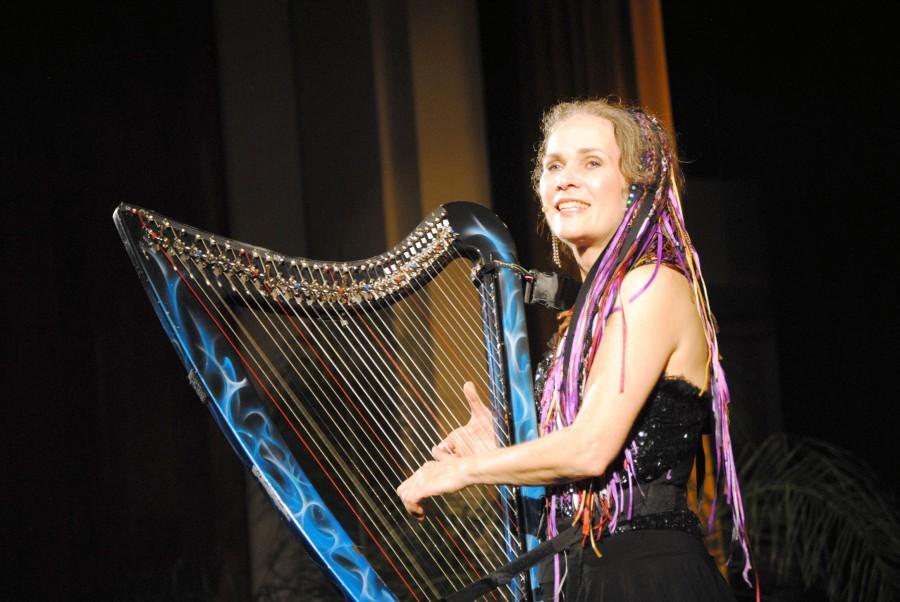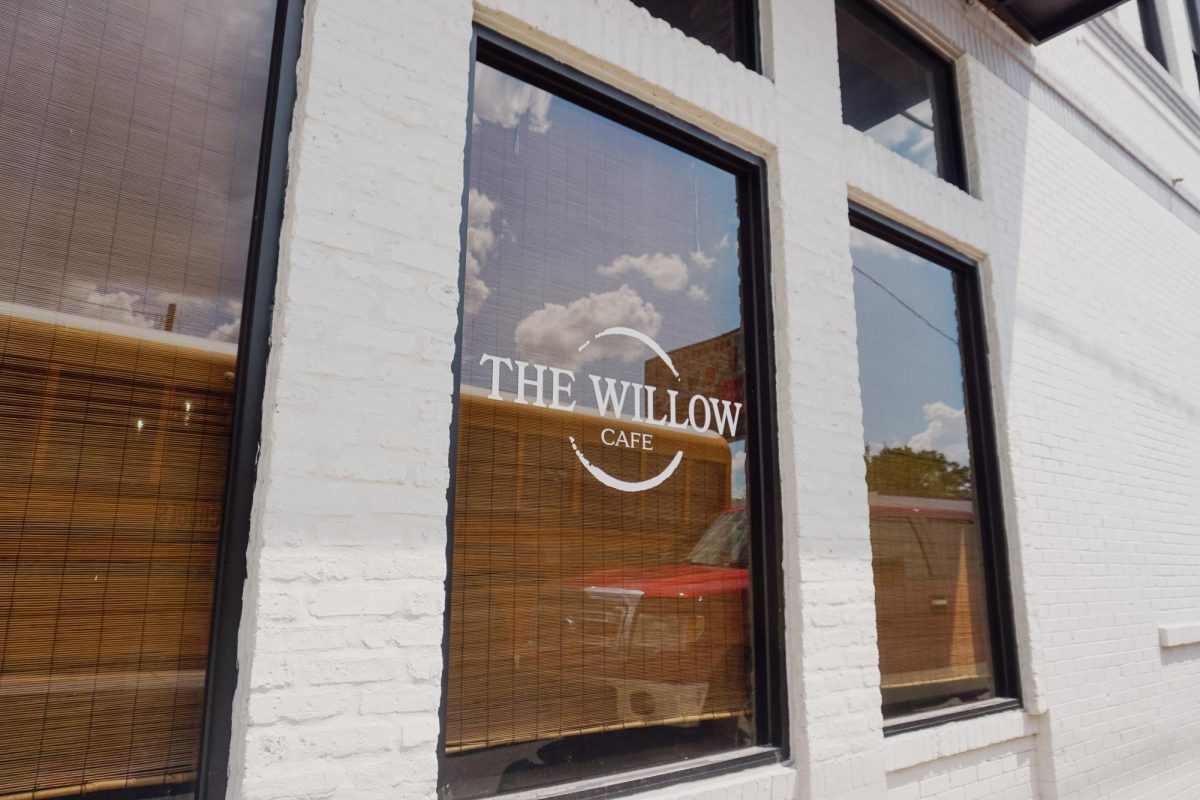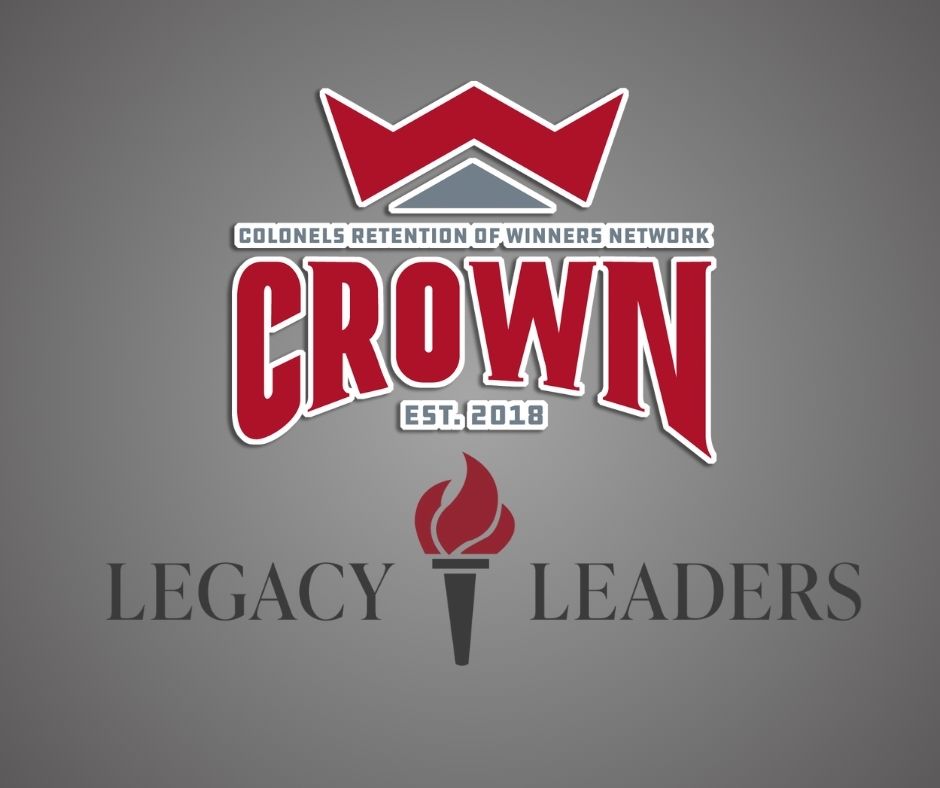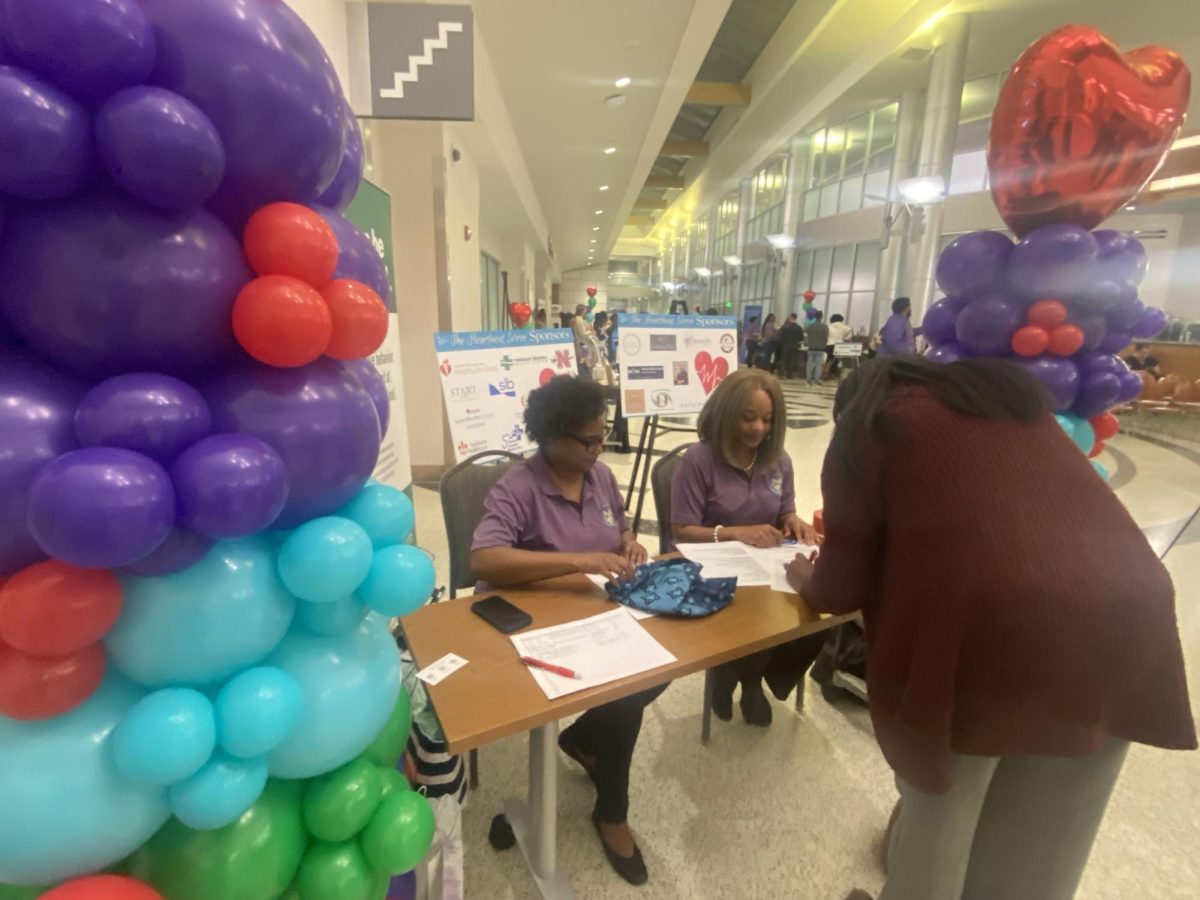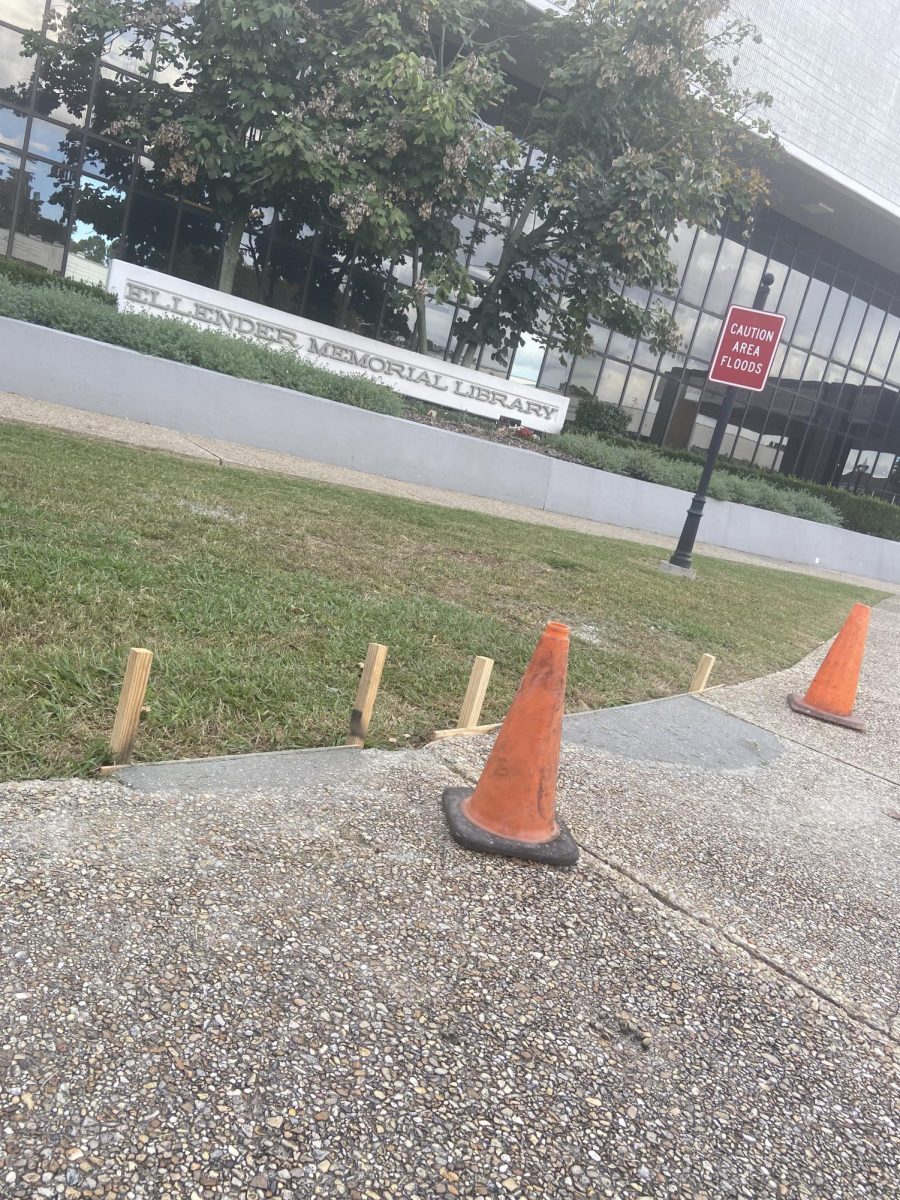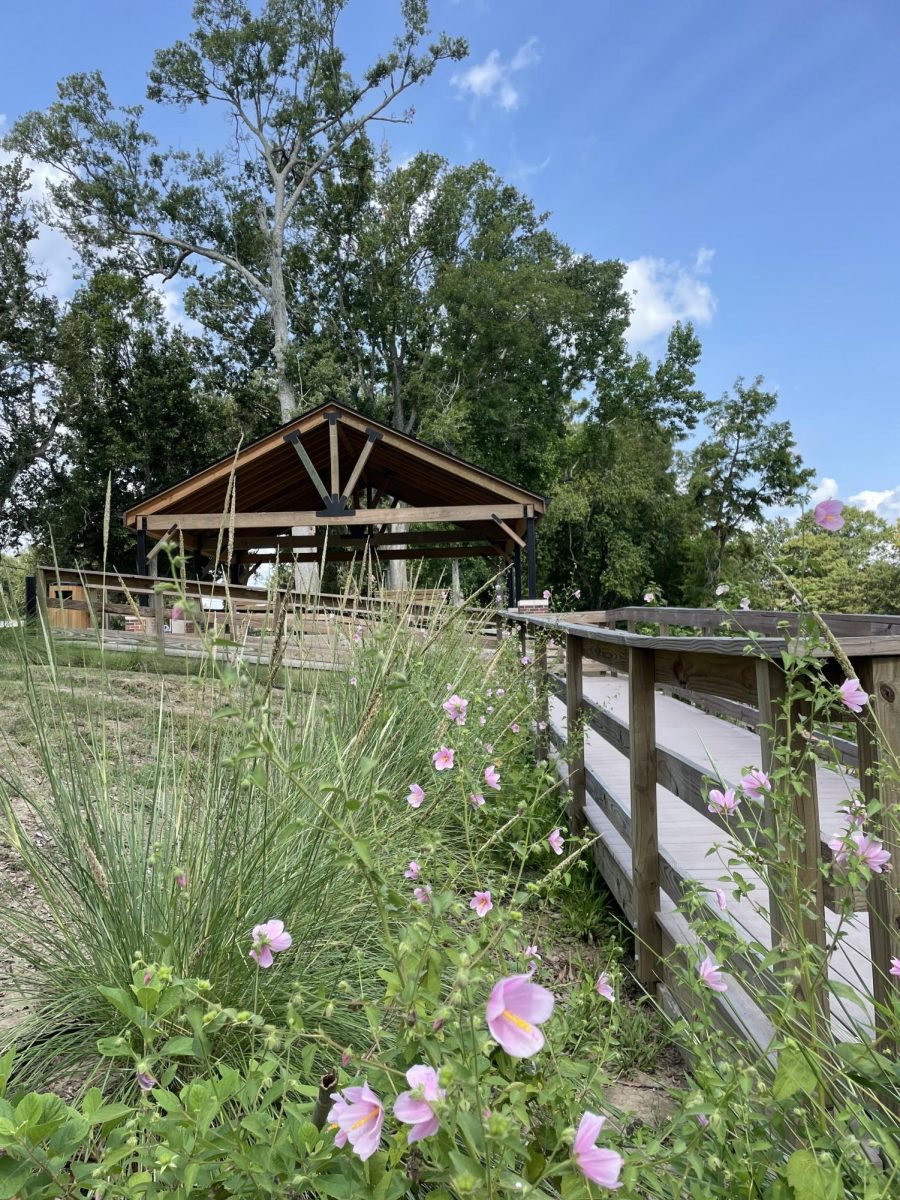As a part of the 13th annual Festival of the Arts Jubilee, Nicholls welcomed Deborah Henson-Conant, a Grammy-nominated electric harpist, for a free show on Monday in Talbot Theater.
Henson-Conant uses music, theater, storytelling and comedy in her show while performing a combination of blues, flamenco, Celtic, funk, folk and jazz music all on an electric harp that was made exclusively for her.
Henson-Conant has shared the stage with the Boston Pops, opened for Ray Charles and created her own music special, “Invention & Alchemy,” which aired on PBS stations across the country. She has been featured on NBC, CBS, CNN and NPR, and she has been interviewed by Charlie Rose, Lou Rawls, Joan Rivers, Studs Terkel, Scott Simon, Billy Taylor and Susan Stamberg.
Henson-Conant was given her first harp from her parents after they misunderstood her request for a blues harp harmonica.
“I took harp lessons in college, but I wanted to learn to play jazz on the harp,” Henson-Conant said. “After college, I put together a trio with a harp, bass and drums and started playing in jazz clubs around Boston.”
One of her harpist friends invited her to play at a harp festival in Edinburgh, Scotland, and from there she was invited to Germany.
“In Germany, I met an agent who was interested in booking tours for me,” she said. “So for many years I toured Germany with a huge concert harp and a band. At one point, Charlie Rose, who then had a television show on NBC, invited me to play on his show, and from that I got offered a record contract and started playing more in the U.S.”
Fifteen years ago, Henson-Conant came to Nicholls after being invited by Angela Hammerli, distinguished service professor of education. At this time she was still playing a six-foot tall, 75-pound amplified concert harp but dreamed of an instrument that was smaller and more powerful to make touring easier.
“I was just getting interested in writing concertos for harp and orchestra, and though I was still playing a standard concert harp, I was using it in very different ways,” she said.
After watching her perform at Nicholls, Hammerli brought Henson-Conant to meet professor William Grimas at Louisiana State University.
“He is one of the nation’s leading pops orchestra arrangers,” she said. “He kindly gave me some pointers and encouraged me in my writing and arranging.”
A few years later, Henson-Conant was invited to tour and solo with the Boston Pops.
“I wrote the orchestra charts, and thus began a huge new phase of my career: soloist with orchestra,” she said. “Trust me. This all has to do with what brought me back to Nicholls State!”
During this time, Henson-Conant began working with a harp builder in France called CAMAC on a prototype for a completely new kind of harp—one that would be a hybrid of a harp and electric guitar.
“This harp would allow me to have much more power than the concert harp and would be almost as small as an electric guitar—the touring harp I’d been dreaming about,” she said.
Henson-Conant continued her orchestra and solo shows along with her collaboration on developing the new type of harp, and in 2006, she made a musical special for PBS called “Invention & Alchemy.”
“That project featured the new style of harp, and it aired on PBS stations around the country,” she said. “The CD received a Grammy nomination.”
Henson-Conant said that her favorite thing about her career is that she has complete control over what she does.
“I can make my own mistakes and have my own successes,” she said. “It’s very challenging to be pioneering a new instrument, in part because people have a preconceived idea about what a harp can and can’t do and in part because I’m inventing as I go along.”
Henson-Conant went on to say that every once-in-a-while she gets pulled in to someone else’s idea of what she should be doing, but she eventually realizes that it is not the path for her.
“The best thing about my career is that when that happens, I have the freedom to reset my compass and head back towards me,” she said.
In her last visit to Nicholls, Henson-Conant played her six-foot-tall, 75-pound concert harp. This time, however, she was armed with the latest version of the electric harp—a carbon fiber model that she is honored to say was named after her—the DHC Blue-Light.
“It’s very exciting to return to Nicholls State many years later and reconnect with a moment when all of that was just a fantasy for me,” she said. “My visits to Nicholls are the brainchildren of Angela Hammerli, and considering what a rich phase of my life the last one started, I’m delighted to be back here again and see what this one will bring!”


